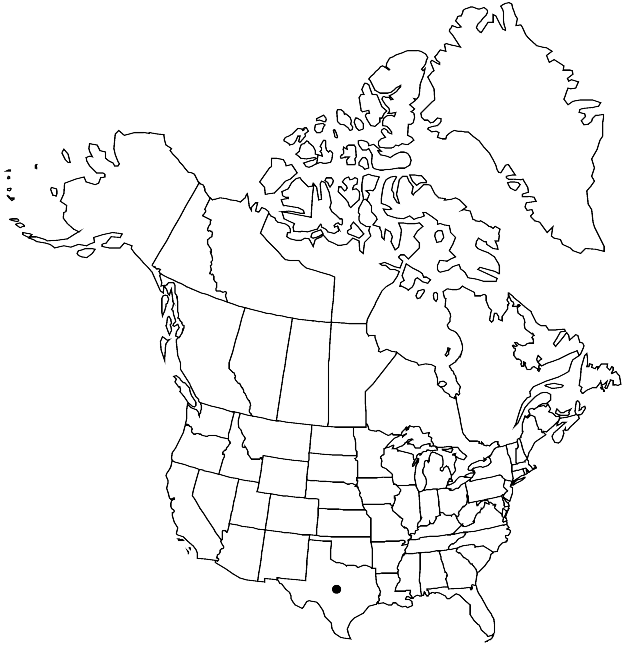Difference between revisions of "Streptanthus bracteatus"
Gen. Amer. Bor., 146, plate 60. 1848.
FNA>Volume Importer |
imported>Volume Importer |
||
| (5 intermediate revisions by 2 users not shown) | |||
| Line 6: | Line 6: | ||
|place=146, plate 60. 1848 | |place=146, plate 60. 1848 | ||
|year=1848 | |year=1848 | ||
| + | }} | ||
| + | |special_status={{Treatment/ID/Special_status | ||
| + | |code=E | ||
| + | |label=Endemic | ||
| + | }}{{Treatment/ID/Special_status | ||
| + | |code=C | ||
| + | |label=Conservation concern | ||
}} | }} | ||
|basionyms= | |basionyms= | ||
| Line 11: | Line 18: | ||
|name=Erysimum bracteatum | |name=Erysimum bracteatum | ||
|authority=(A. Gray) Kuntze | |authority=(A. Gray) Kuntze | ||
| + | |rank=species | ||
}} | }} | ||
|hierarchy=Brassicaceae;Brassicaceae tribe Thelypodieae;Streptanthus;Streptanthus bracteatus | |hierarchy=Brassicaceae;Brassicaceae tribe Thelypodieae;Streptanthus;Streptanthus bracteatus | ||
| Line 35: | Line 43: | ||
-->{{#Taxon: | -->{{#Taxon: | ||
name=Streptanthus bracteatus | name=Streptanthus bracteatus | ||
| − | |||
|authority=A. Gray | |authority=A. Gray | ||
|rank=species | |rank=species | ||
| Line 48: | Line 55: | ||
|publication title=Gen. Amer. Bor., | |publication title=Gen. Amer. Bor., | ||
|publication year=1848 | |publication year=1848 | ||
| − | |special status= | + | |special status=Endemic;Conservation concern |
| − | |source xml=https:// | + | |source xml=https://bitbucket.org/aafc-mbb/fna-data-curation/src/2e0870ddd59836b60bcf96646a41e87ea5a5943a/coarse_grained_fna_xml/V7/V7_1216.xml |
|tribe=Brassicaceae tribe Thelypodieae | |tribe=Brassicaceae tribe Thelypodieae | ||
|genus=Streptanthus | |genus=Streptanthus | ||
Latest revision as of 23:30, 5 November 2020
Annuals or biennials; (glaucous); usually glabrous, (sometimes pedicels pubescent). Stems often branched distally, (2.3–)4.5–12 dm. Basal leaves not rosulate; long-petiolate; blade oblanceolate to spatulate, 5–25 cm, margins lyrately lobed to irregularly dentate. Cauline leaves: blade oblong to ovate, 3–15 cm × 15–80 mm (smaller distally as bracts), base auriculate to amplexicaul, margins entire or shallowly dentate. Racemes bracteate throughout, (proximalmost bracts leaflike, distalmost much reduced). Fruiting pedicels divaricate-ascending, 7–19 mm, (glabrous or puberulent). Flowers: calyx campanulate; sepals (ascending to suberect), 8–12 mm, (not saccate basally), not keeled, (inner pair apiculate); petals purplish, 14–19 mm, blade 7–12 × 5–7 mm, margins not crisped, claw 6–8 mm, (slender), much narrower than blade; stamens tetradynamous; filaments: median pairs (distinct), 6–8 mm, lateral pair 4–6 mm; anthers (all) fertile, 4–6 mm; gynophore 1–2 mm. Fruits divaricate ascending, smooth, straight, flattened, 8–14.5 cm × 2.5–4 mm; valves each with prominent midvein; replum straight; ovules 48–80 per ovary; style 1–3.5 mm; stigma 2-lobed. Seeds oblong, 3–4 × 2–3 mm; wing 0.5–0.7 mm wide at apex, continuous.
Phenology: Flowering Apr–Jun.
Habitat: Openings in oak-juniper woodlands, shallow, well-drained, gravelly clay-loam areas derived from limestone, dry rock hills, bluffs
Discussion
Of conservation concern.
Streptanthus bracteatus is restricted to Austin, Bandera, Blanco, Medina, Real, and Travis counties. It is in the Center for Plant Conservation’s National Collection of Endangered Plants.
Selected References
None.
